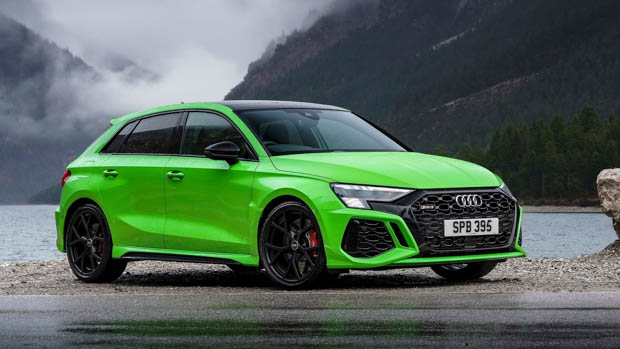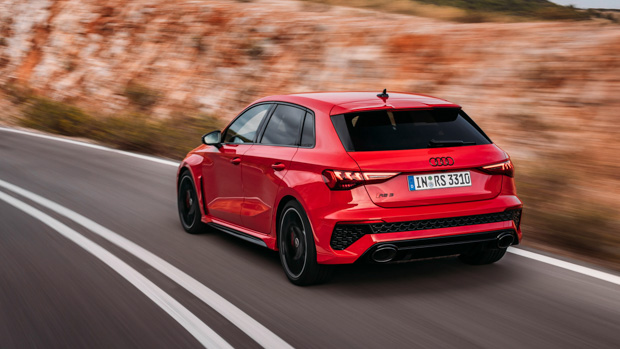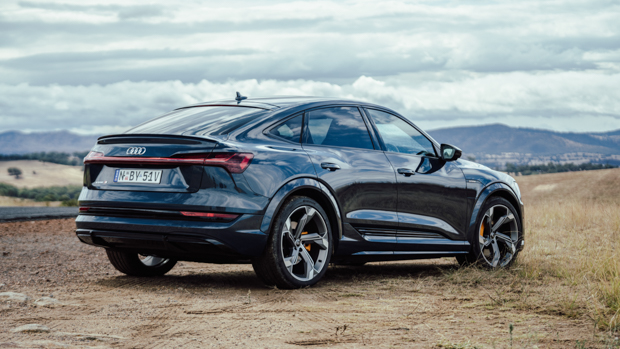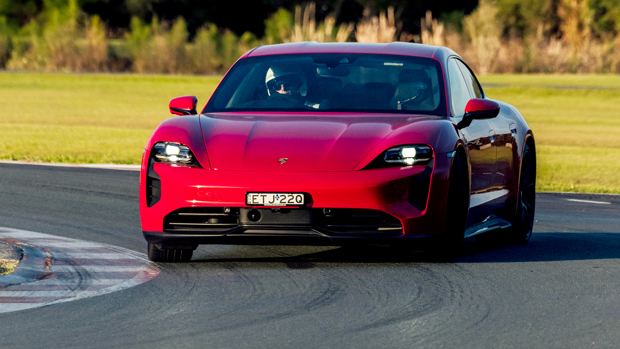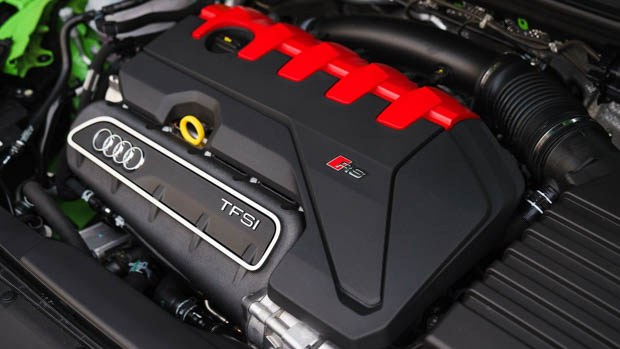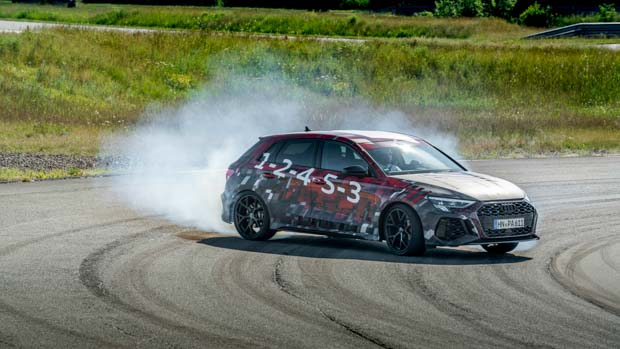-
Car Reviews
- All reviews
- Midsize SUVs
- Small cars
- Utes
- Small SUVs
- Large SUVs
- Large cars
- Sports SUVs
- Sports cars
- Vans
Latest reviews
- Car News
-
Car Comparisons
Latest comparisons
- Chasing Deals
The Audi A3 range will likely be fully electrified for its next generation which means an end of an era for the turbocharged four- and five-cylinder powertrains
The upcoming fifth-generation Audi A3 will make a huge technical departure to how it is now, according to reports from UK auto magazine Autocar.
The UK publisher has said that the next generation of small Audi will begin with the Audi RS3 rather than the A3 and will be sold alongside the upcoming electric Audi A4 and A6.
For Audi, the S3 and RS3 are the two best-selling, A3-based variants in the UK, with Ingolstad selling a reported 753 RS3s and 442 S3s in the last month alone.
Autocar also mentions that the yet-to-be-revealed electric sports super hatch will be called the “RS3 E-tron” and will outpace the new-generation Audi RS3 with an acceleration time of under 3.8 seconds to 100km/h. That is supercar pace. For context, a Ferrari 458 from 2011 is claimed to do the 0-100km/h run in 3.4 seconds, so will this new RS3 be able to take the lead?
Undoubtedly, electric performance small vehicles are in the pipeline at BMW and Mercedes-Benz.
It is almost certain that Mercedes-AMG will build a successor to its all-wheel drive A45 hot hatch (that could perhaps adopt the same hybrid system as the next AMG C63 sedan) but the Audi is likely to be first as the likes as its key German rivals are yet to introduce their future electrification plans for their small car segment.
What could an RS3 e-tron look like? We’ve dreamt up our dream build and the componentry we would like to see in an electric RS3.
Powertrain and all-wheel-drive system
The powertrain for the RS3 e-tron could likely be based on the underpinnings of the current and upcoming e-tron performance variants, however it’ll be toned down somewhat to ensure the top models aren’t overtaken.
With the nameplate’s long all-wheel-driven history, we think that a dual-motor setup with an electric motor on each axle will help put the power down onto the road.
The RS3 e-tron could gain a similar setup to the J1 platform that underpins the Porsche Taycan and Audi e-tron GT – a powertrain that is currently capable of producing up to 475kW of power and over 1000Nm of torque.
As the RS3 is a small car, the standard 71kWh battery pack currently found in the Taycan and Audi e-tron GT may have to be downsized to fit a smaller package. The batteries would probably fit under the floor in a common skateboard-like design.
Audi could source its next-gen RS3 platform from Volkswagen which could mean that the platform underpinning the next Golf or ID electric vehicle could be used. A tri-motor e-tron system that is downsized for a small car chassis could be a possibility, also.
Sound
For many people, the 2.5-litre turbocharged petrol five-cylinder engine was one of the reasons people went for the RS3 over its main competitor, the Mercedes-AMG A45 S. It’s an important part of the RS3 model and has been that way since its introduction. While the A45 always made more power, the RS3 had an iconic soundtrack that could be traced back to the days of Group B rally with the Audi S1 quattro.
To keep that heritage and feeling alive, we think some kind of authentic five-cylinder engine sound should be piped through the speakers (if the owner wants it, can be turned off) to keep the theatre of the car, even if it’s just for the occupants.
The RS3 today remains to be the last high-volume production car with a five-cylinder engine and we reckon that’s pretty special.
Brakes
For any electric car, or any performance car for that matter, high-power braking is integral to high-performance dynamic ability and safety.
We think that a decent set of carbon-ceramic brakes (currently an option on the 8Y Audi RS3) would be a good way to go for the e-tron version.
Regeneration would be incorporated into the braking system to help recharge the batteries, especially at track days when the RS3 e-tron is at its absolute limit.
All prices listed are before on-road costs .
Latest news
About Chasing cars
Chasing Cars reviews are 100% independent.
Because we are powered by Budget Direct Insurance, we don’t receive advertising or sales revenue from car manufacturers.
We’re truly independent – giving you Australia’s best car reviews.
